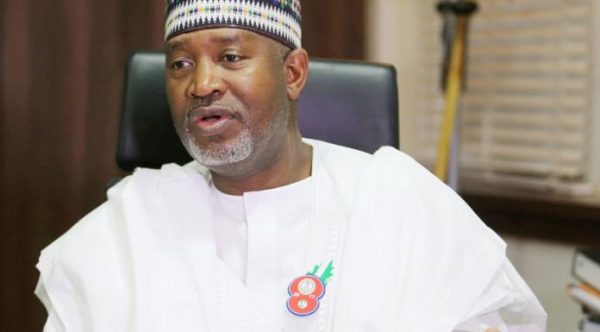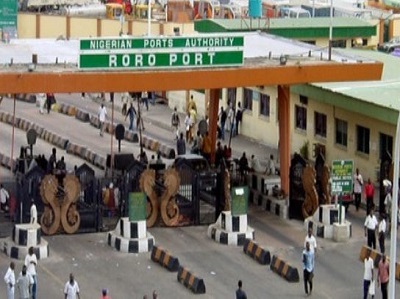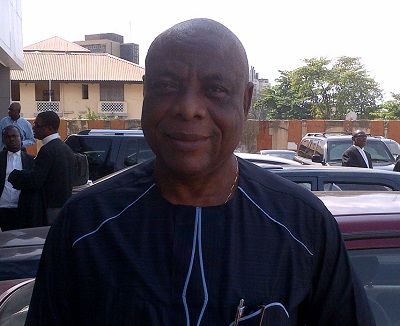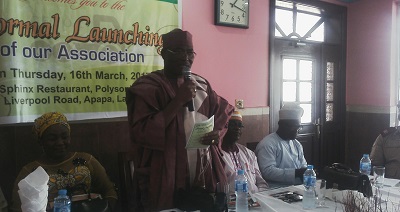In Dramatic Twist, FG Suspends Nigeria Air Project

- NCAA: Aircraft leasing companies may blacklist Nigeria
In a move that jolted local and international investors, the federal government Wednesday suspended the implementation of the national carrier project, Nigeria Air, which was scheduled to commence operations in December.
The Minister of State for Aviation, Senator Hadi Sirika, who disclosed this in Abuja, however, pledged that the federal government would honour all its commitments to investors.
This development is coming as strong indications have emerged that aircraft leasing companies may blacklist Nigeria over the failure of domestic operators to keep to terms of agreements in leasing aircraft, spares and engines.
Sirika further clarified that the decision to suspend the airline project was strategic and has nothing to do with politics and pressure from stakeholders.
The minister who said this shortly after meeting with the President, World Meteorological Organisation (WMO), Mr. Pereri Taalas, who paid him a courtesy visit in his office, said, “I regret to announce that the Federal Executive Council has taken the tough decision to suspend the national carrier project in the interim.”
According to him, “All commitments due will be honoured. We thank the public for the support as always.
“Today in council, the Federal Government of Nigeria has decided to suspend the national carrier project for some strategic reasons and we would advice you in due course.”
He explained that the decision had nothing to do with the pressure from stakeholders because, “We have explained as a government that for 40 years since 1978 to 1980 when decision was made to liberalise the sector, we saw the coming of Okada, Aero, ADC, Bellview; we have seen their coming and their exit and right now, we have got Medview, Air Peace, Arik; we have got all of these people with permission to go international.”
Sirika, when pressed further to state the reasons for the suspension of the project, said, “We have given them Banjul, Dubai, London, South Africa and everywhere. Of course none of them is meeting the need by Nigerian people to have robust national carrier and that is to say that something is amiss.
“That was the intention of government to be able to set up a carrier that would deliver this service to the Nigerian people.
“So, the service is needed and that is why the federal government went ahead to appoint transaction adviser to continue the process.
“So, it has nothing to do with pressure. There is no pressure and you and I know that the service is not being delivered in Nigeria; locally here and internationally as well.
“Prices of tickets are astronomical within international routes and certain routes in Nigeria that ought to be developed are not developed. In the past, Nigerian Airways was doing Makurdi, Sokoto, Calabar, Maiduguri with DC10 and full.
“So, this absence, this gap is there. With all the number of airlines flying the country, this sudden growth to 20 airplanes, we have seen it in Okada, Kabo, Arik and many others but the service is not being delivered. So there is no argument from stakeholders to say we should not proceed, no.”
On whether it is political or not, he said, “I think those saying it was politically motivated are being very unfair to the president.
“Sitting to my right is the Rector of Nigeria College of Aviation Technology (NCAT), Captain Abdulsalam Muhammed. Even before I was made the minister, shortly after Mr. President was sworn in, he was made the Chairman of the task force to establish a national carrier and once I became minister, they handed over the report to government and government gave me the report and asked me to implement to set up a national carrier. So, it had nothing to do with politics. It is strategic and let us leave it at that. It has been suspended for now.”
On how the international stakeholders would perceive the decision, he said, “Since there is lot of international engagements and banks, consulting companies and all and how do they believe in us that we are serious again in future.
“I believe it is very clear and they know we are serious. The amount of time and resources spent in the last two and half years trying to get to the end of this procurement speaks for us and also the viability of the project especially the Outline Business Case that has been developed has shown to the world that this is a serious venture and this is serious government and we are serious to do it and since I said it is strategic, it is part of the strategy. Whenever we come back, our government or a future government to do it, I am sure the international community will believe in us and will believe as to the reasons which would advance the reasons to suspend it for now.”
NCAA: Aircraft Leasing Companies May Blacklist Nigeria
In a related development, there are strong indications that aircraft leasing companies may blacklist Nigeria over failure of domestic operators to keep to terms of agreements in leasing aircraft, spares and engines.
This development was disclosed to THISDAY in an interview by the Director General of the Nigerian Civil Aviation Authority (NCAA), Captain Muhtar Usman.
According to him, Nigerian airlines are now finding it difficult to lease aircraft and spares from international lessors.
He said the development was due to the actions of two airline operators who reneged on their contractual agreements with the lessors to return their leased aircraft as enshrined in agreement they signed.
Usman added that rather than return the aircraft, the operators went to court to stop the lessors from repossessing their airplanes.
The director general also explained that Nigeria is signatory to Cape Town Convention, which allows an airline of member nations to lease aircraft and return them as agreed, but some Nigerian airlines after signing agreement to abide by these conditions repudiate them after possessing the aircraft.
Usman said that there is a clause in the Cape Town Convention that authorises the Civil Aviation Authority to deregister the aircraft in contention and allow the lessor to repossess his aircraft.
“The Cape Town Convention allows airline operators to lease aircraft at affordable prices. In the past, before the Convention was introduced, people leasing out aircraft (lessors) were having difficulty repossessing their aircraft when there was default. So that Convention took care of that by providing irrevocable deregistration authorisation for the Civil Aviation Authorities where there is default should be able to deregister their aircraft and for the owner (the lessor) to repossess his aircraft.
“That has made it possible for our operators to access leases. It is not only Nigeria; so many countries have signed to the Convention and Nigeria has domesticated it. But unfortunately because of the acts of two operators, Nigeria is about to be blacklisted and this would make it difficult for other operators to have access to access aircraft on lease,” Usman said.
The airlines’ inability to lease airplanes, he explained, has affected the number of aircraft in operation in the country.
This, it was learnt, has forced the airlines to hike their fares in order to meet their operational cost, as demand outstrips supply due to fewer operational aircraft.
Without the ability to lease, some Nigerian airlines are left with only one choice – outright purchase of aircraft at high cost occasioned by the depreciating value of the naira.
Usman disclosed that Nigerian airlines that want to lease aircraft might not be able to do so because the country is now identified as a pariah state that cannot keep to terms of leasing agreement.
Usman also denied a claim that any aircraft was taken out of the country, adding that the aircraft said to have been taken out of the country are still in Lagos.
He explained that there were two aircraft and two helicopters that were leased by Topbrass Aviation Limited, which the company allegedly failed to return according to the terms of the leasing agreement, which prompted the lessor to request for the re-possession of the aircraft.
The director general said in line with the Cape Town Convention, NCAA had to deregister the aircraft and grounded their operations in Nigeria, after the Managing Director of Topbrass Aviation, Captain Roland Iyayi, had claimed that the aircraft was stolen.
“We thank God that such has not happened. Such cannot happen in Nigeria’s airspace. In fact, it came to me as surprise when I saw it as the front page headline of a major newspaper; that aircraft was stolen from the Murtala Muhammed International Airport. We are not aware of that,” Usman said.
The CEO of Aero Contractors, Captain Ado Sanusi, also told THISDAY that Nigerian airlines had already been blacklisted by some lessors because it is difficult to lease aircraft, engines and spares.
“It is because of this that my requests to lease nose wheel from some companies were rejected. I have made efforts to lease aircraft spares but the request was rejected. This is a problem caused by those who cannot abide by the terms of agreement when they leased aircraft,” Sanusi said.
The Chief Executive Officer of Topbrass, Capt. Roland Iyayi, had told journalists that his company kept to the terms of agreement in the leasing of the aircraft, but the lessor later failed at execution.
“Our belief is that there is a group somewhere trying to manipulate the system to the detriment of Topbrass, doing everything to see that we are taken out of business completely. The truth is that we have completely moved out of the rule of law to impunity. But in the long run, it is not in the interest of the country,” he said.







